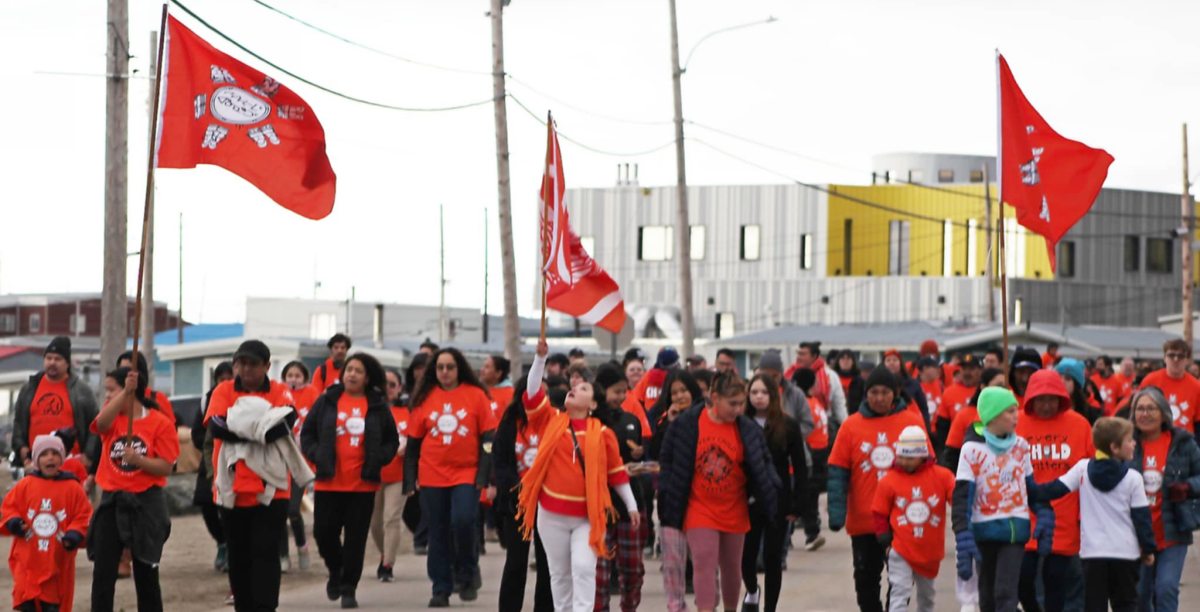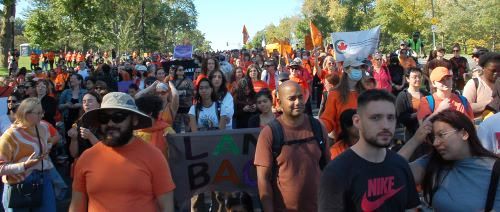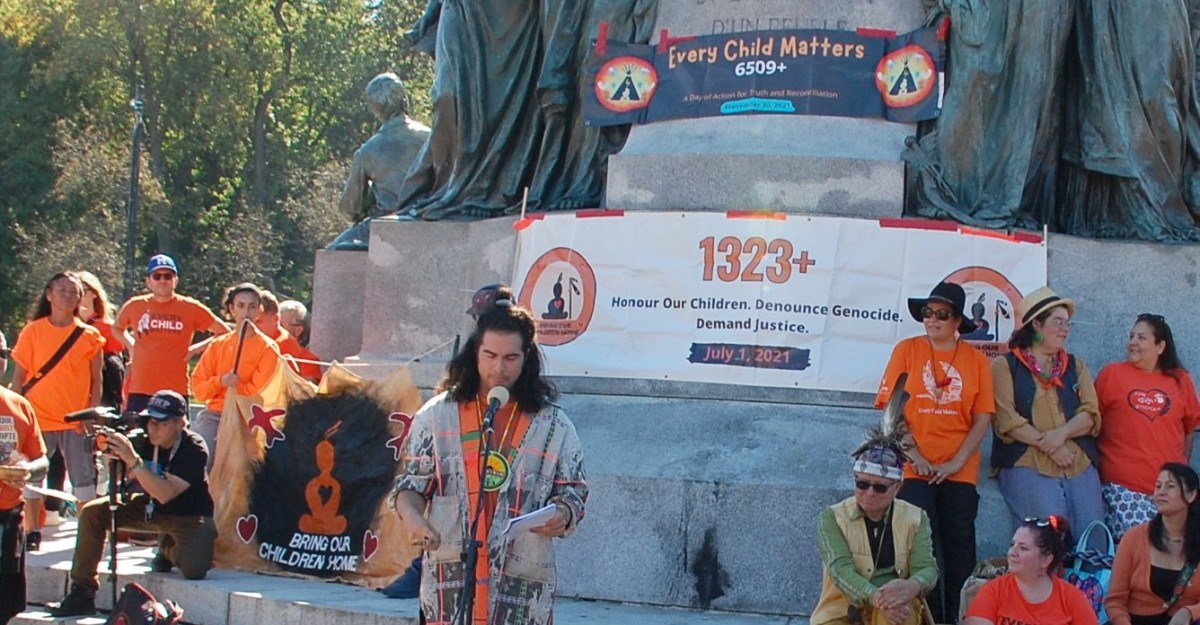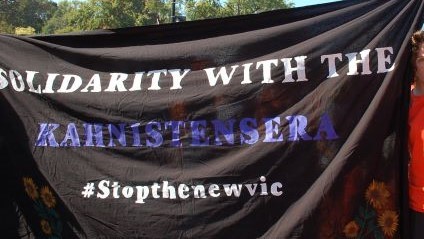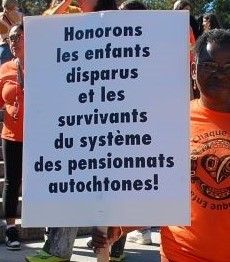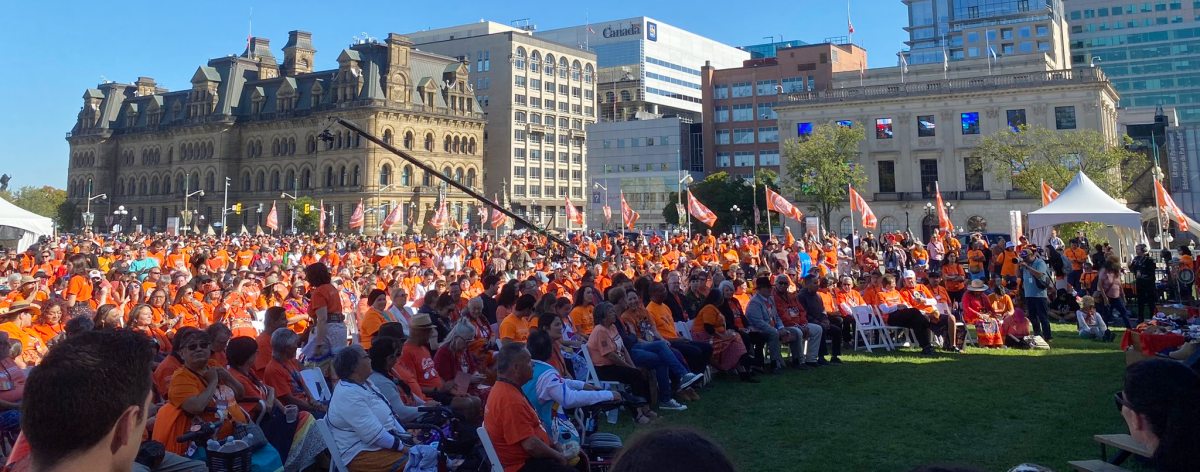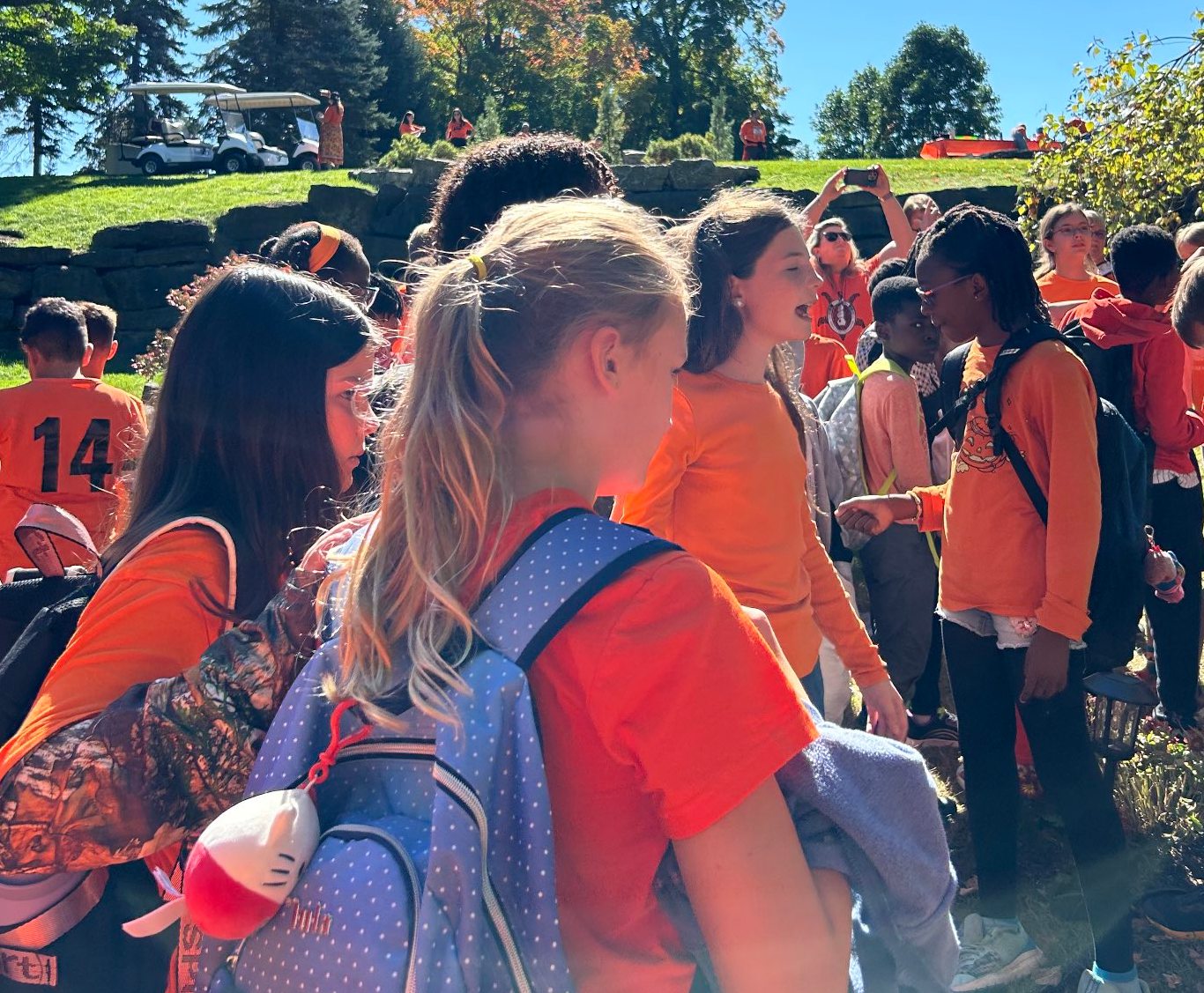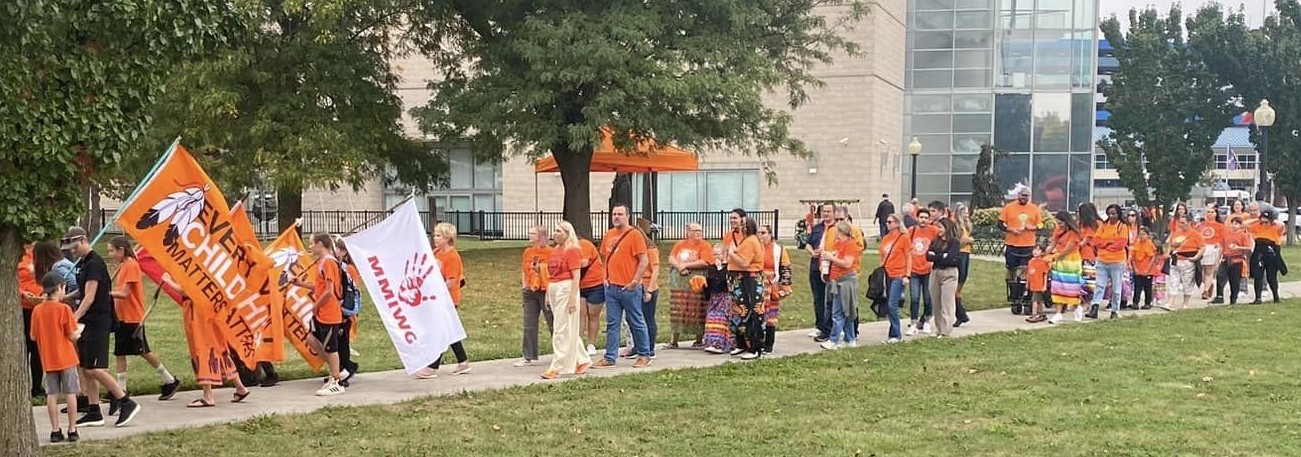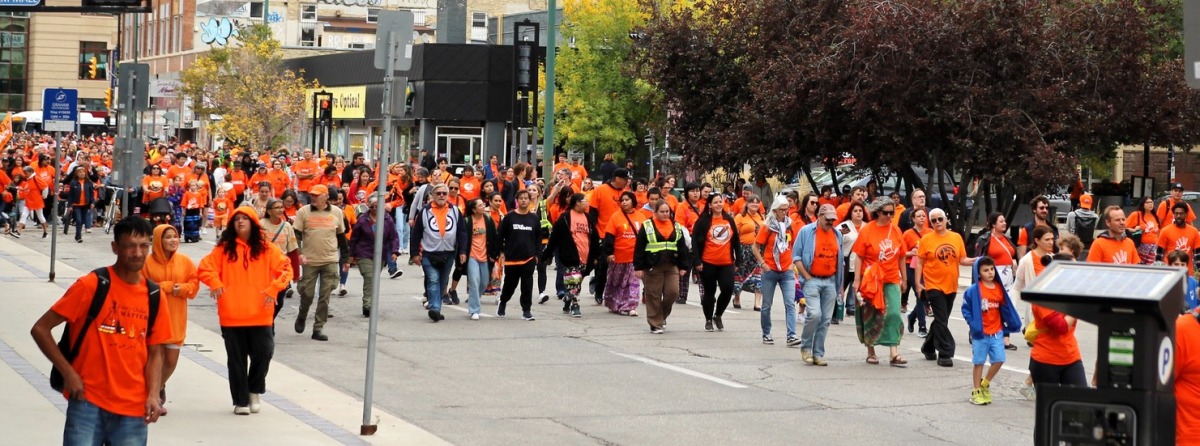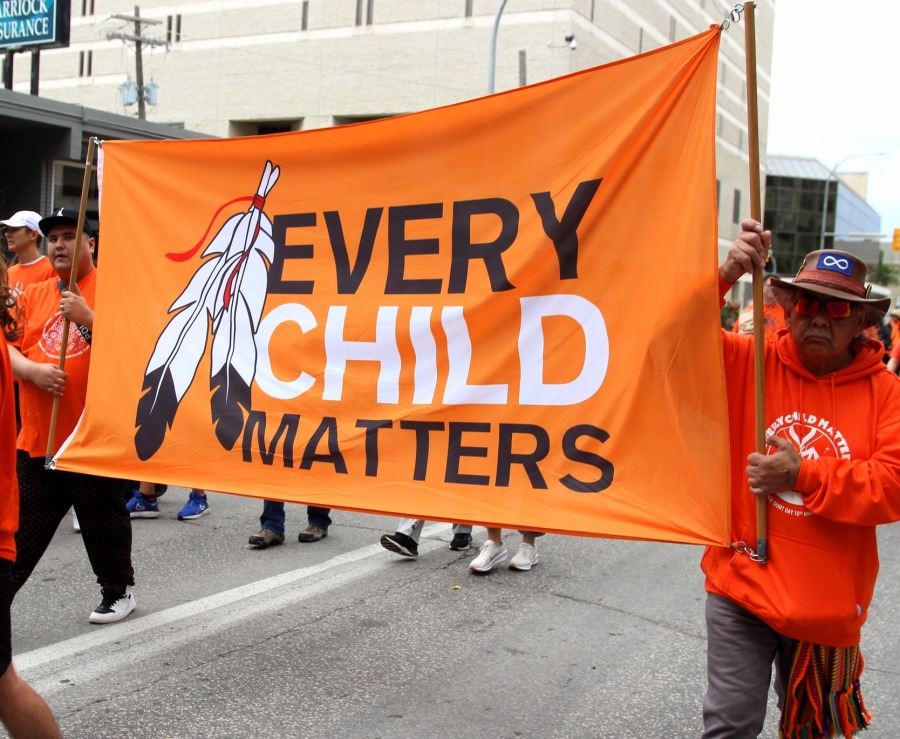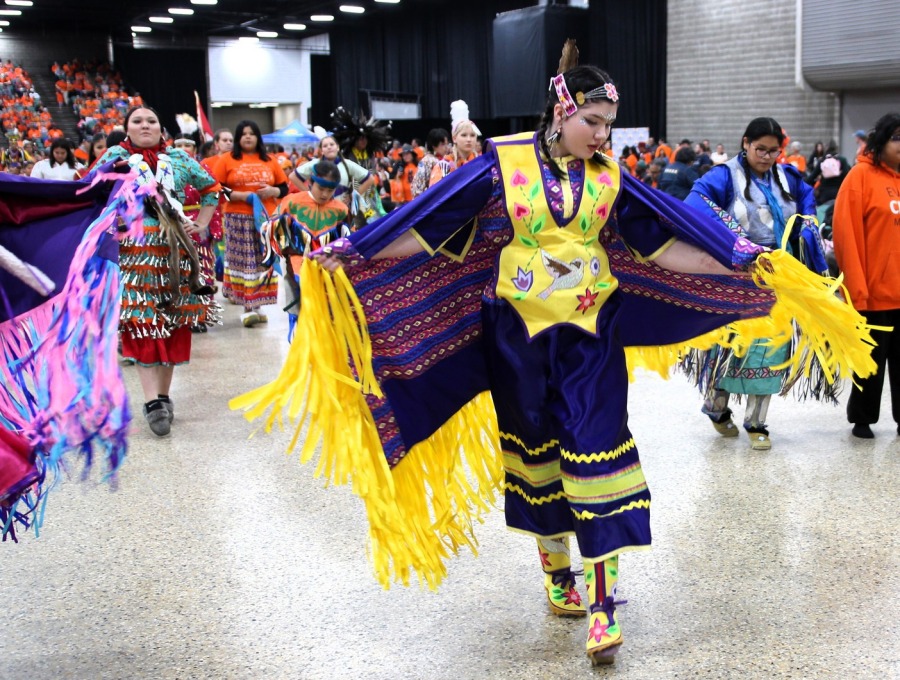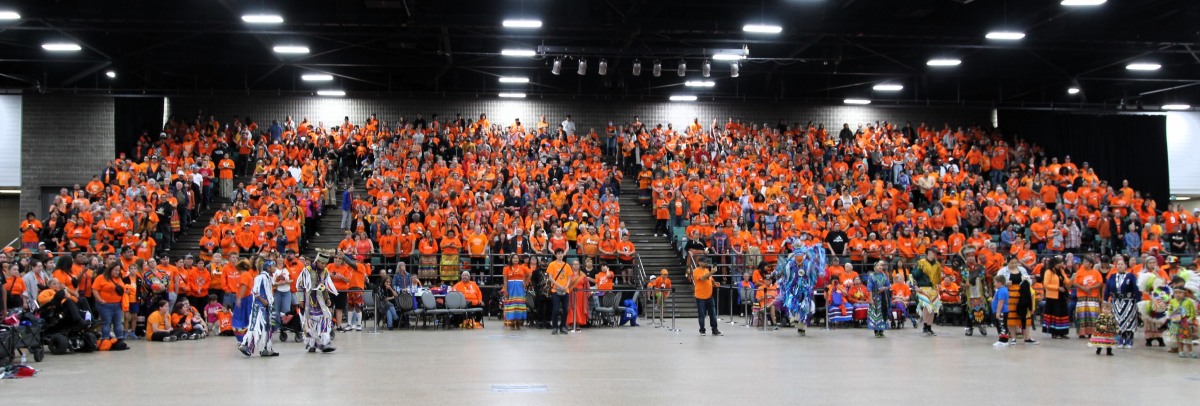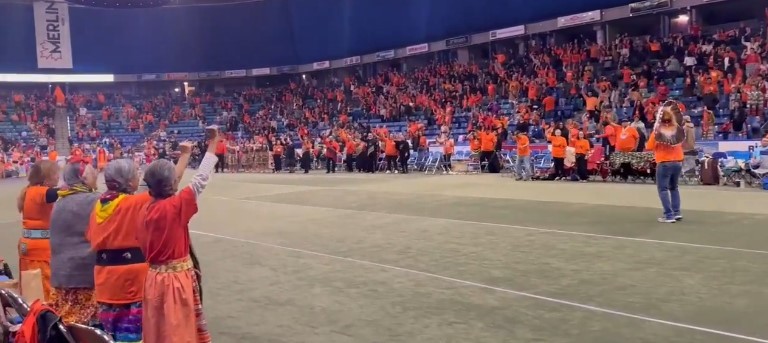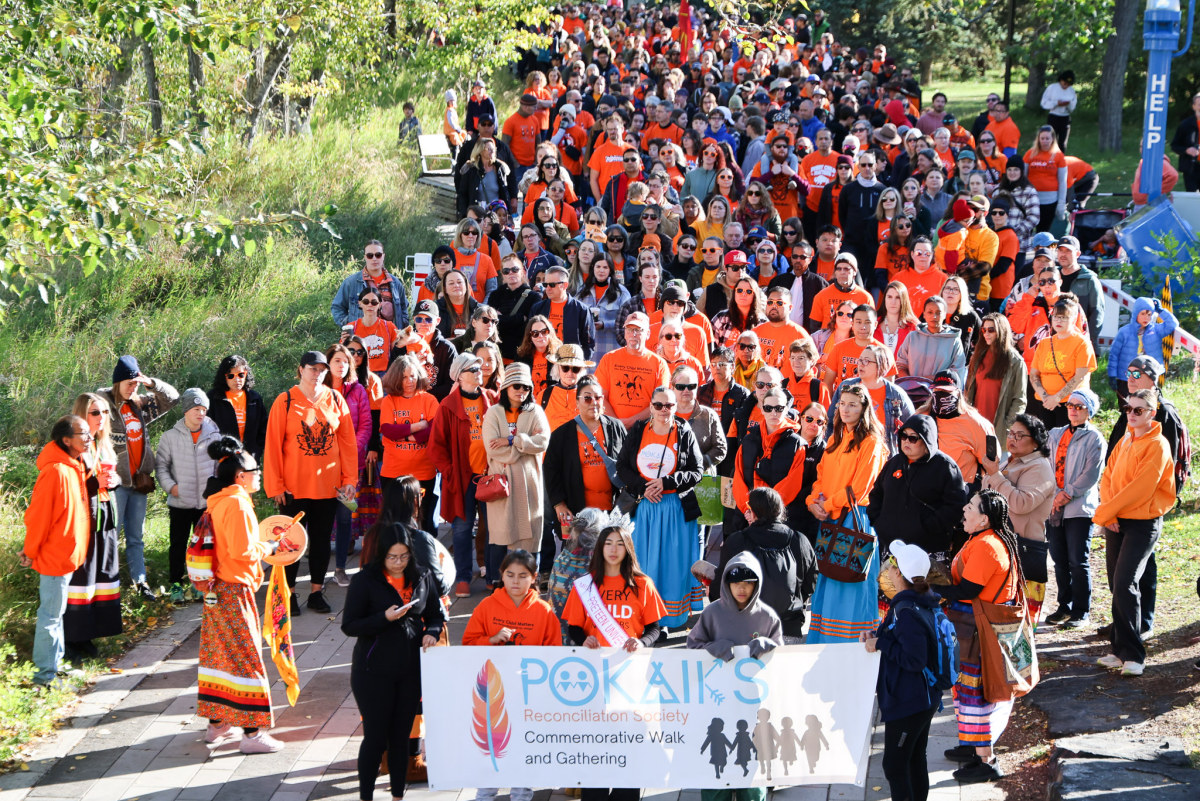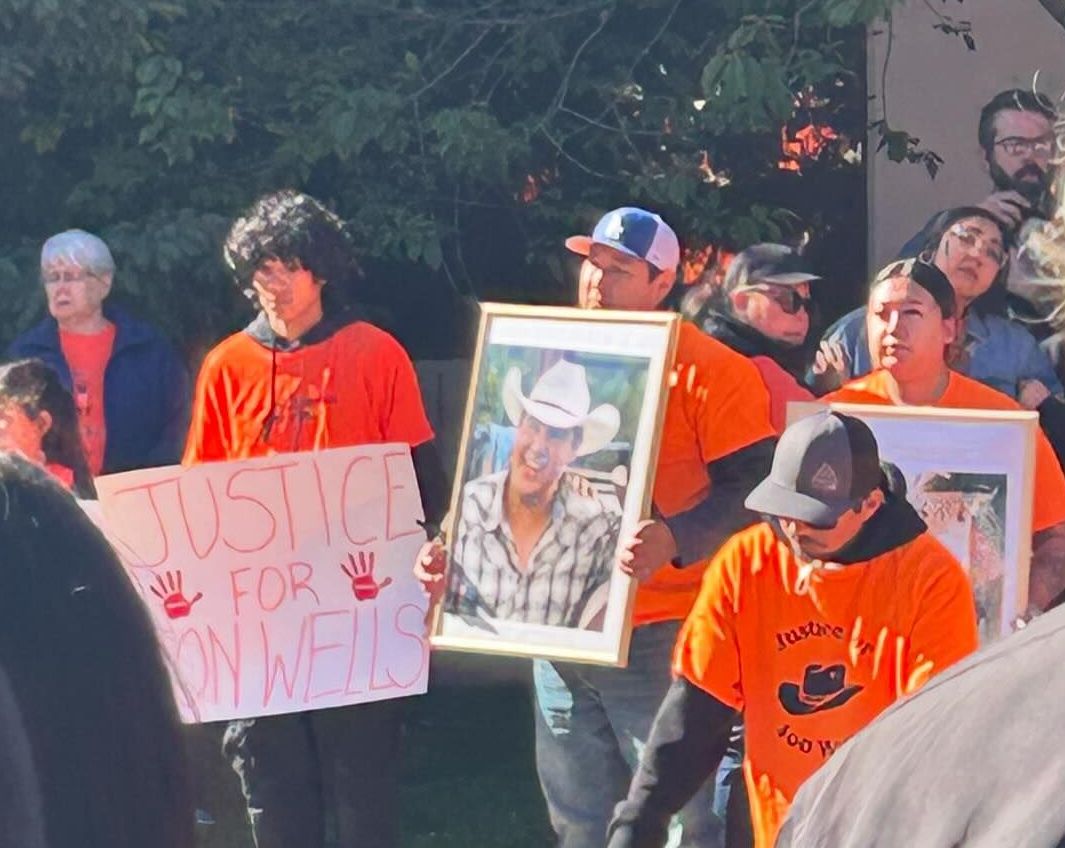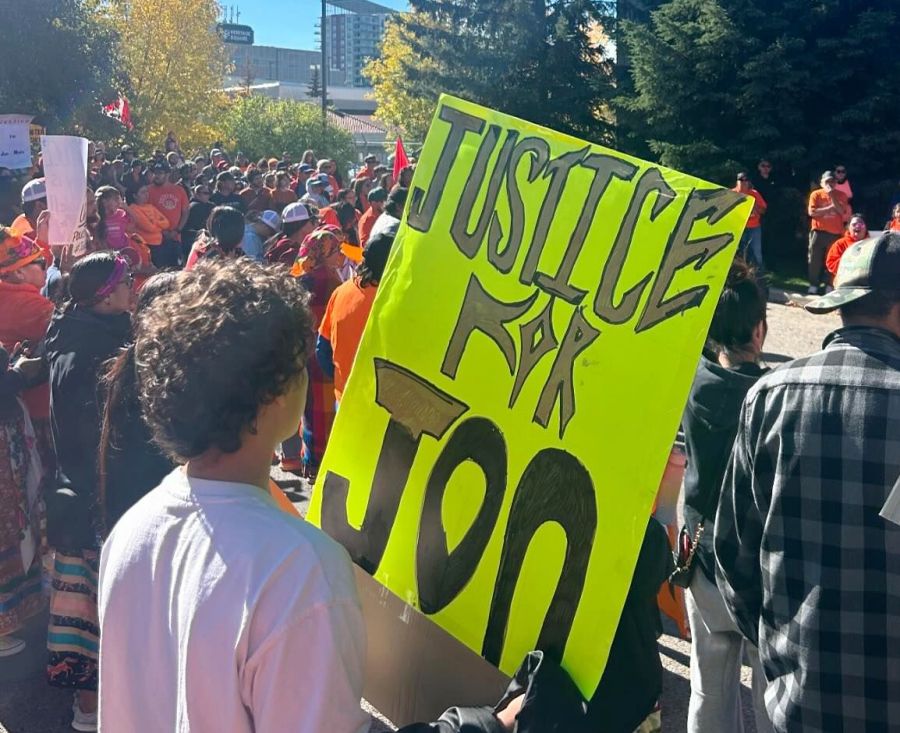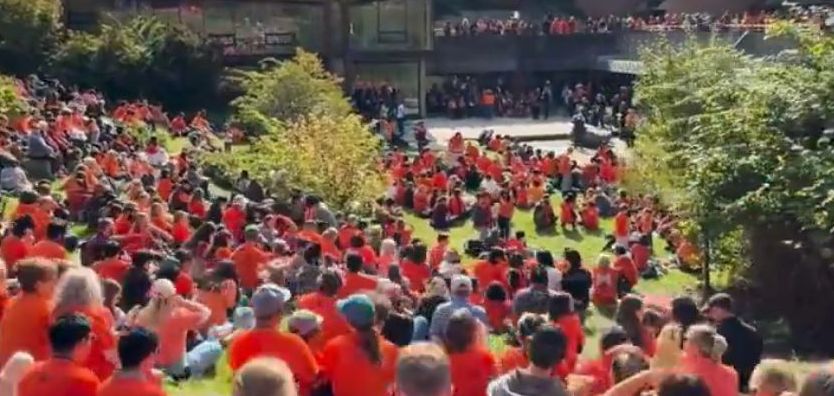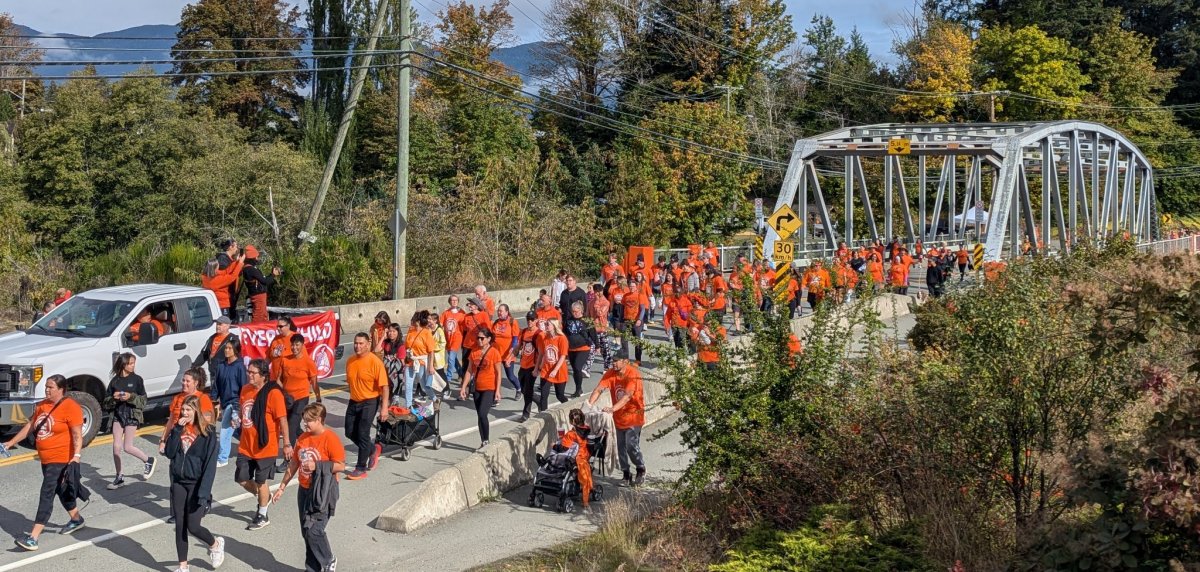October 3, 2024
Orange Shirt Day
Actions Demand Justice and
Accountability
from Canadian State
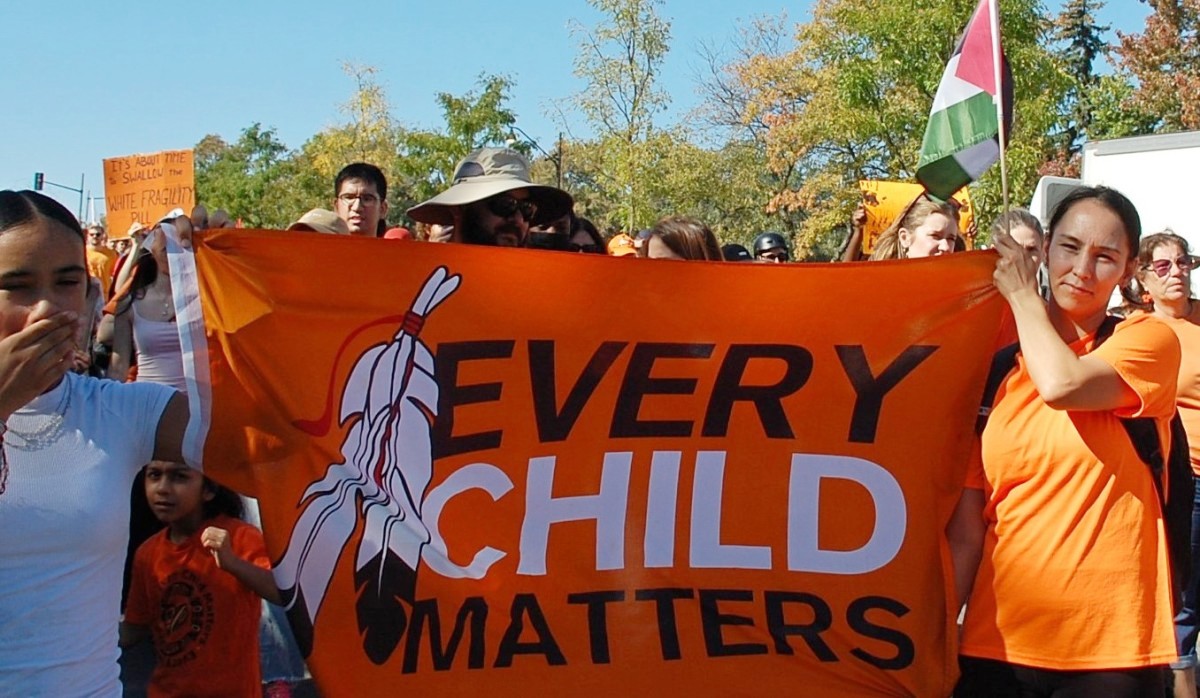 Montreal, September 30, 2024
Montreal, September 30, 2024
• Actions Demand Justice and Accountability from Canadian State
• Canada's Criminal Undermining of Search
for Evidence in
Deaths of
Children at Residential Schools
Orange Shirt Day
Actions Demand Justice and Accountability
from
Canadian State
The 11th Orange Shirt Day and the fourth National Day for Truth and Reconciliation were marked across Canada on September 30, 2024. Communities large and small from coast to coast to coast held ceremonies, marches, rallies and other events to mark the day. Across Canada, Indigenous Peoples, Canadians and Quebeckers joined together to honour the survivors of the brutality and indignities Indigenous Peoples endured in residential schools. Events expressed the unity of the Indigenous Peoples, Canadians and Quebeckers who are demanding justice for the survivors and their families and for an end to the state-organized genocide against Indigenous Peoples that continues to this day in spite of talk of "reconciliation."
More than 150,000 First Nations, Métis and Inuit children were taken from their communities between 1867 and 1996 by agents of the colonial state and forced to attend boarding schools run by Christian churches where they were stripped of their languages, identity and dignity. The aim of the state was to destroy the Indigenous Peoples by depriving them of their collective way of life in tune with nature. Suppressing their languages, culture and spirituality for purposes of eliminating their memory and thought material were crucial to the state to steal the territories and impose Anglo-Canadian rule on the Indigenous Peoples. As individuals who gave up their identity they were allowed citizenship within the Canadian body politic.
More than 6,000 of the children perished in residential schools through malnutrition, disease, torture and suicide. That the forced assimilation and genocide did not succeed is a reflection of the resilience and defiance of the Indigenous Peoples and the children themselves, many of whom tried to escape and return to their homes.
A thousand people marched through the streets of Montreal following speeches and ceremony performed by an elder from Kahnawake Mohawk Territory at the foot of Mount Royal. Nakuset, executive director of the Native Women's Shelter of Montreal which organized the event, called on youth to step up and fight for the implementation of the recommendations of the Truth and Reconciliation Commission because the government is not going to, with only 11 of the 94 calls to action implemented in nearly 10 years.
On Parliament Hill a crowd listened to speeches, songs and drumming. Stephanie Scott, executive director of the National Centre for Truth and Reconciliation, told the crowd "The residential school system was intended to destroy us, and they did not succeed... Our children suffered in those institutions, and to this day, their spirits call out to all of us to be remembered and honoured."
Ceremonies were held in the Maritimes including Charlottetown, Prince Edward Island, Fredericton, New Brunswick, and other communities, in towns and cities in Quebec and Ontario.
In Manitoba, thousands of people participated in an Orange Shirt Day healing walk in Winnipeg to honour those who died and those who survived residential schools. Joseph Maud, a member of the Skownan First Nation in Manitoba spoke about attending the Pine Creek residential school until grade three when the school closed in 1969. He, nine years old, and his 11-year-old brother were then taken by a social worker and placed in a foster home in southern Manitoba, victims of the Sixties Scoop. After four and a half years of brutal treatment Maud said that in 1973 he and his brother escaped and made the dangerous 150-kilometre journey through swamps, rivers and muskeg to get to his grandmother's home.
Events took place in many BC communities large and small. Several hundred people gathered at Surrey's Holland Park on September 27 to honour residential school survivors and their families and to remember those who did not return. Bannock and beverages were served and Indigenous dancers and drummers performed. In Port Alberni on Vancouver Island hundreds marched through the streets to the Tseshaht First Nation community where the Alberni Indian Residential School operated until 1973.
The Union of BC Indian Chiefs issued a statement that said, in part,
"On this day, we urge everyone to approach the painful history of residential schools with compassion and open-heartedness. It is imperative to learn about Canada's racist and genocidal origins and to understand the profound significance this day holds for First Nation, Inuit and Métis communities. Survivors, intergenerational survivors and their families continue to bear the weight of the trauma inflicted by Residential Schools, the failed child protection system and other oppressive institutions, including the recent and rampant Residential School denialism expressed by several municipal leaders, institutions and other organizations."
After the Liberal Government came to power in 2015, Prime Minister Justin Trudeau stated in December that year: "There is no relationship more important to me -- and to Canada -- than the one with First Nations, the Métis Nation, and Inuit," and pledged to act with dispatch to implement the 94 Calls to Action put forward by the Truth and Reconciliation Commission's final report after its seven years of investigations.
In spite of his promises little effort has gone into implementing the recommendations. It took more than five years for the government to establish the National Day for Truth and Reconciliation, #80 of the TRC's Calls to Action. To divert from the ongoing colonial violence against Indigenous Peoples, and to justify government inaction, Prime Minister Trudeau noted on September 30: "The true journey of reconciliation will take decades."
This is unacceptable. The fact is that the Constitution of Canada puts the Canadian state above the hereditary rights of the Indigenous Peoples and it is bypassing their decision-making power at every turn. Indigenous Peoples, Canadians and Quebeckers want an immediate end to this Canadian state abuse. It is their unity in action and just demands that Canada must uphold the hereditary rights of Indigenous Peoples that are key to renewing the political arrangements in Canada, including drafting a modern democratic constitution that upholds the hereditary and treaty rights of Indigenous Peoples.
Iqaluit
Montreal
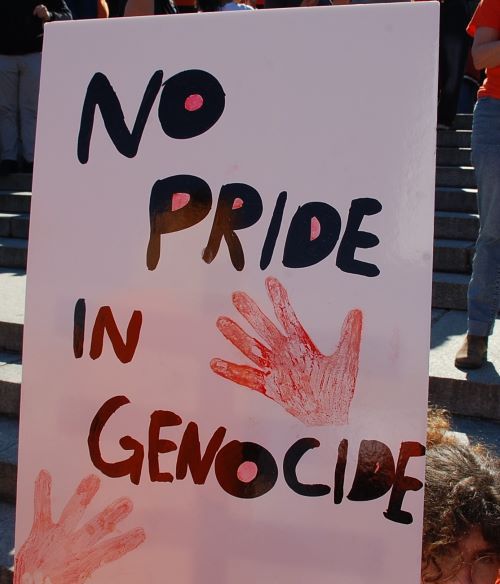
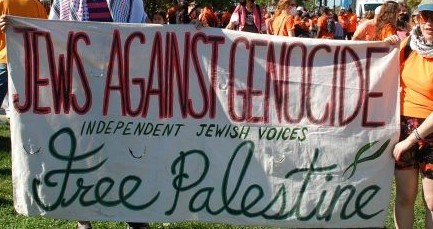
Ottawa
Huntsville

Windsor
Kenora

Winnipeg
Saskatoon
Calgary
Vancouver
Victoria
Port Alberni
(With files from the Truth and Reconciliation Commission, Yellowhead Institute and CBC. Photos: TML, C. Blackstock, Grand Council Treaty 3, joyscm, I. Idlout, Tseshaht, Southern Chiefs)
Canada's Criminal Undermining of Search for Evidence in Deaths of Children at Residential Schools
Amidst the events and commemorations marking the fourth National Day for Truth and Reconciliation, the Survivors Secretariat at Six Nations of the Grand River held a press conference on Parliament Hill. The Survivors Secretariat was established to recover and investigate the records of the former Mohawk Institute near Brantford, Ontario, to find the names of the Mohawk children who died at the school.
At the press conference they exposed Canada's plans to cut funding for the important work that they are doing. Since taking on the work to uncover the graves and names of the children who died on the grounds of the Mohawk Institute when it was operating between 1831 and 1970, the Survivors' Secretariat has expanded its work and established working relations with more than 60 other Indigenous communities across Canada whose children also died while attending residential schools.
The issue of the deaths and burials of Indigenous children in unmarked graves was sharply brought into the national consciousness in Canada after the Tk'emlúps te Secwépemc First Nation announced in 2021 that preliminary findings from a radar survey of the grounds of the former Kamloops Indian Residential School in BC indicated that there were 215 unmarked graves on the school grounds.
At the time, the Trudeau government, under great pressure from Indigenous Peoples, Canadians and Quebeckers, pledged to fund the search for graves and children's remains there and on the grounds of other residential schools. In 2022, $209.8 million, a paltry amount, was allocated to support Indigenous communities who wanted to carry out their own investigations to "document, locate and memorialize" burial sites. That money has funded 146 such projects.
The Survivors' Secretariat points out that the most recent federal budget is offering $91 million over two years to continue research that the organization says is critical in getting to the truth of what happened to the children in these church-run institutions.
Laura Arndt, executive lead of the Survivors' Secretariat, speaking at the press conference noted that reduction of funds to the Residential Schools Missing Children Community Support Fund means that Indigenous communities are being "pitted against one another" and that the justifications are not acceptable. She also informed that the funding cuts were announced in a Zoom meeting in August where the Indigenous communities and organizations' mikes were muted and questions could only be posed through the chat function.
She pointed out that Indigenous communities are trying to uncover 150 years of history and that the money that has been provided in the last three years by Canada is woefully inadequate to do the work. She noted as well that the federal government is still withholding 23 million documents concerning the residential schools which they promised to hand over last year. She pointed out that to do a proper job to honour the victims will take many years and hundreds of millions of dollars.
Arndt said that Prime Minister Trudeau's claims to "support communities" and "be there every step of the way to honour the children who did not return" do not mean much if the work does not receive stable funding. She also added that there could be no reconciliation without the truth being acknowledged and that the undermining and underfunding of the important work being carried out to research and recover the graves of each child that died contributed to the "denialist" narrative that various individuals in official circles are taking up to say that the residential school system did not exist, that Indigenous Peoples are fabricating this whole sordid episode in Canada's history. She said:
"We say to the prime minister -- we've had enough. Promises only matter when you keep them, so keep your promise. Do it for the communities, do it for this country, so that they know what real reconciliation looks like."
"We shouldn't be held over a barrel in the national month of reconciliation, begging for funding for a promise that this prime minister made. Why should we have to beg for money from the very entities that conducted this atrocity?" she asked, adding that if the federal government undermines the work that needs to be done by cutting funds, the federal government will be part of the "denialist movement" aimed at whitewashing the crimes that were and are being committed by the Canadian state against Indigenous Peoples.
Also speaking to the media on Parliament Hill was Roberta Hill, a former student at the Mohawk Institute and a member of the Survivors' Secretariat who said that the school was "very horrific, very damaging, harmful and abusive," and that people like her deserve to know the true extent of the carnage caused by schools like it.
Research and investigations "are going to take time, and to cut funding now is just absolutely ridiculous, and it just makes me angry and very frustrated," she added.
What the Trudeau government is doing in the name of the Canadian people and reconciliation is unconscionable. It is criminal to pour salt in the wounds of the survivors of the racist and brutal residential school system and sully the memory of those who died. It must not pass.
(With files from CPAC, CBC)
(To access articles individually click on the black headline.)
Website: www.cpcml.ca • Email: editor@cpcml.ca

